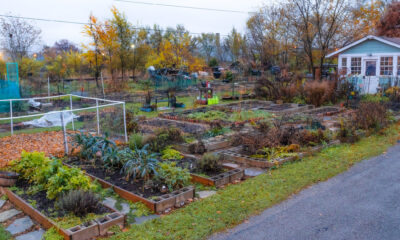Opinion
Op-ed: Calls for Statehood Will Not Help Palestine

The views and politics expressed by opinion writers are their own, and do not necessarily reflect the views of The Youth Insight. We maintain an open-door policy for Opinion pieces, regardless of political ideology. If you would like to be considered for publication, please reach out here.
European officials have made recent calls for the recognition of Palestinian statehood, with Spain and Ireland set to announce Palestinian sovereignty by July. According to Spanish Prime Minister Pedro Sanchez, Spain’s recognition of Palestine will compel a “critical mass” of Western nations to accept Palestinian statehood, potentially leading to Palestine’s complete admission into the United Nations.
“The world is now more critical of Israel and more vocal in its support for Palestinian self-determination,” writes Alon Liel of the Real Instituto Elcano. “It seems as if [Spain’s move to recognize Palestine] can bring about the renewal of the momentum for Palestinian recognition. Some Western European countries are already considering this option, Spain among them.”
Symbolically, the recognition of Palestinian statehood is a huge stride towards the sovereignty the Palestinian people have sought since 1967, when Israel “occupied” the land through the founding of illegal settlements and the forced displacement of thousands of Palestinians.
But that is just the problem. The act is only symbolic. It does not guarantee that the rights of Palestinian people will be protected, nor does it promise an end to the oppressive Israeli regime. Over and over again, diplomatic endeavors to establish two states in the occupied Palestinian territories have failed. As shown by the results of the Camp David Summit, the Clinton Parameters, and the Arab Peace Initiative, a two-state solution is not a viable alternative to Palestinian independence.
It is important to consider how the call for Palestinian statehood will alter the current dire reality of the Palestinian people. Will it put an end to the indiscriminate slaughter of the Palestinian people? Will it assure that no more Palestinian children are killed by relentless bombing? Will it rebuild the destroyed infrastructure in the West Bank and the Gaza Strip? Will it return Palestinians to their homes? The answer is a resounding no.
As Palestine Policy Fellow of Al-Shabaka Yara Hawari declared in an article published in Al Jazeera, a crucial question that the international community must ask itself is “whether some states are pushing for this symbolic political move amid an ongoing genocide to avoid taking much more tangible action, such as arms/trade embargoes and sanctions on the Israeli regime…”
Certainly, it is difficult to disagree with Hawari in light of the roles countries such as Spain and Ireland have played in the Gaza conflict. In November, Centre Delas per la Pau, a Spanish peace organization, reported that Spain sent roughly $1.1 million in arms sales to Israel, violating the Spanish government’s oath to avoid compliance in the genocide of Palestinian people. In spite of its alleged support for Palestine, Ireland has also not ceased trade operations with Israel, sending about $75 million worth of goods since 2023.
One cannot help but wonder why a government would simultaneously recognize a country’s statehood and contribute to its total destruction. Perhaps the Palestine that some members of the E.U. are content with recognizing is the one that exists now, the one that has suffered thousands of losses to Zionism and apartheid. After all, the two-state solution that diplomats regularly champion is one that does not guarantee the return of displaced Palestinian people or a forfeit of occupied territories to their original inhabitants.
Symbolic acts alone have never ended a genocide, and it is unlikely that the recognition of Palestinian statehood will improve the current condition of the Palestinian people. Palestine does not need the ineffective warnings of government officials to Israel or the alleged support of countries that have contributed to its decimation. What Palestine really needs is action in the form of sanctions and a complete end of global arms exports to Israel.
Opinion
Op-Ed: Biden’s Sudden Change of Heart
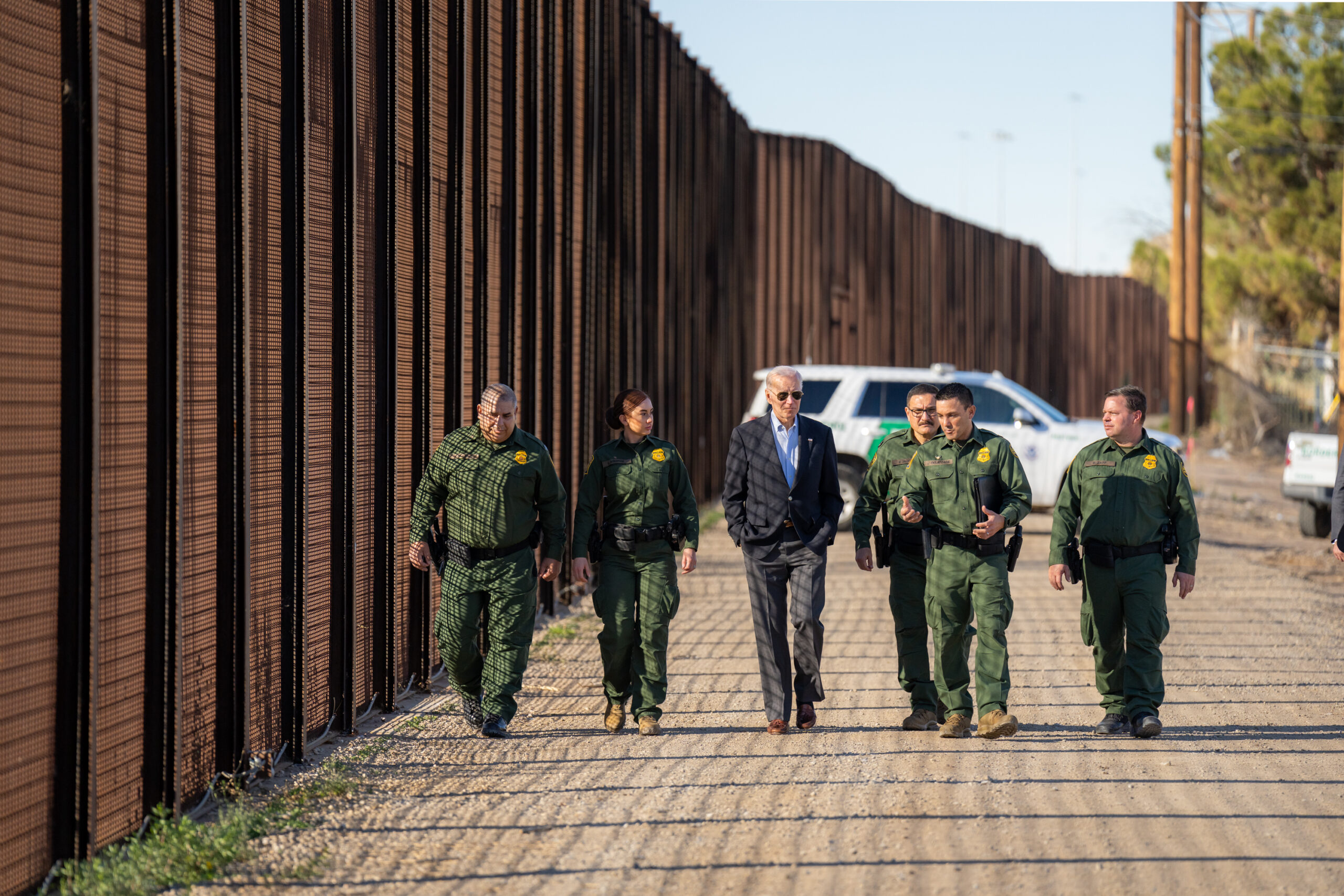
Only two weeks after barring illegal immigrants from seeking asylum at the U.S. southern border, President Joe Biden has reversed his restrictive policies on refugees.
This rapid turnaround came in the form of protections for more than half a million undocumented children and spouses of U.S. citizens. Currently, an illegal immigrant who marries a natural citizen is required to endure a parole period before submitting an application for residency, a long process that has the potential to cost a migrant their family and career. Biden’s recent legislation permits undocumented spouses to complete the residency process without returning to their native country, an executive relief action purportedly designed to prevent the separation of families.
Why did the White House’s previously tough policy on asylum-seekers change, especially so suddenly? Though Biden claimed that he is “not interested in playing politics” regarding legislation on the border, the primary reason for the shift in administration seems to be electoral, calibrated to contest Trump’s threats to deport up to 10 million immigrants should he win a second term in office.
“When [Trump] was president,” Biden said, “he separated families and children at the border. And now he’s proposing to rip spouses and children from their families, homes, and communities, and place them in detention camps. He’s actually saying these things. It’s hard to believe it’s been said, but he’s actually saying these things out loud.”
The purpose of the legislation seems to be appeal. Non-restrictive immigration policies are designed to win Latino votes in battleground states such as Arizona and Nevada, which will be crucial to Biden’s re-election. The new policy is also a reconciliatory effort directed towards lobby groups and immigrants’ rights organizations, including the American Civil Liberties Union, which filed a suit against the Biden administration on June 12 for its handling of the border.
But does this change of heart matter at all? Is it performative, or does it seek to provide actual relief for immigrant families? Chad Wolf, secretary of the Department of Homeland Security under Donald Trump, claims the recent action is the latter, since many undocumented spouses of U.S. citizens who have been in the country for an extended period of time do not face the risk of deportation: “I’m trying to understand the problem that the Biden administration is [solving] here, and I just don’t see it.”
Since Congress repeatedly neglects to address immigration and the border crisis, Biden’s reversal of policy may also prove fleeting. Any executive action not solidified by congressional law has the potential to be contradicted by courts and the administration of the subsequent office holder. (Consider, for example, Obama’s DACA program; failing to end DACA entirely, Trump prevented the submission of new applications, a policy that Biden then upturned.)
Opinion
Op-Ed: Living With Our Food
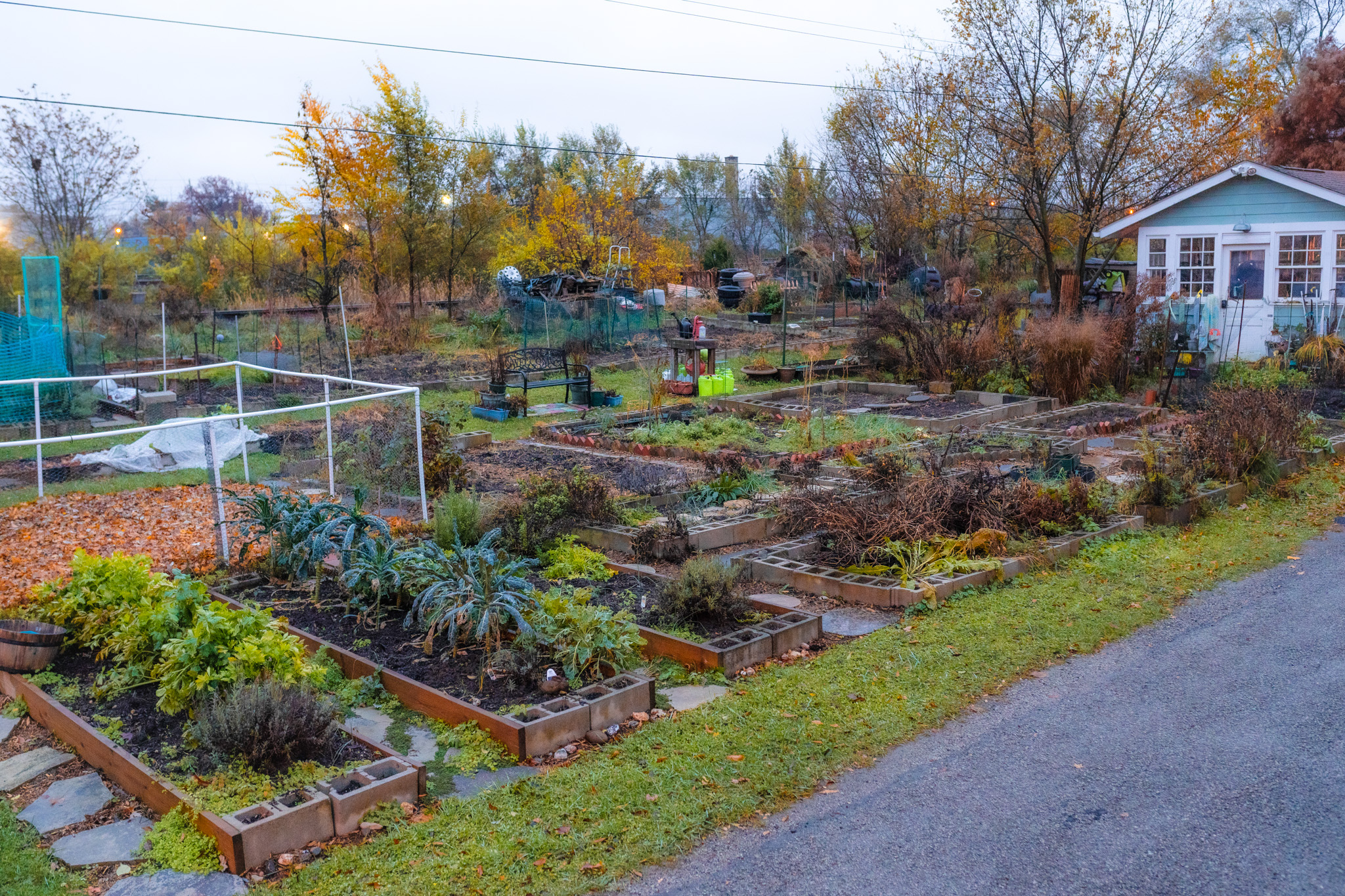
The question “How can I live with myself?” is invariably raised when one has done something particularly cruel or worthy of self-condemnation. As human activity proves increasingly detrimental to our climate and our population, producing more natural disasters, more pollution, and more scarcity, it is difficult not to apply the question to society as a whole: How can we live with ourselves?
Industrial agriculture is not sustainable. It excessively consumes water and fossil fuels, depletes topsoil, and irreversibly damages biodiversity. It is responsible for over 30% of global greenhouse emissions, according to the U.S. Environmental Protection Agency, and has churned out roughly 671.5 million tons of carbon dioxide as of 2021.
It also increases the power corporations exert over food production, ultimately placing a greater emphasis on profits than on people. As it is, we live against our food. My proposal is that we begin to live with it, to incorporate our food supply into our surroundings through a system called permaculture.
“Permaculture,” as the name implies, is a land management and design technique that emphasizes sustainability. The primary goal of permaculture is to combine people and environment in a fashion that is mutually beneficial to all by recycling energy and guaranteeing wildlife conservation alongside sufficient production. It seeks to establish closely knit communities and ensure a stable supply of nutrients and resources. It is, in short, agriculture that lasts.
Commonly, permaculture is practiced on a small scale, in urban gardens or outside of private homes. I suggest, however, that we implement permaculture on a municipal scale, that we integrate it as a viable “green” component of our infrastructure and an ethical means of healthily maintaining our population.
How could permaculture become a central part of cities? The answer lies in community collective projects such as guerilla and rooftop gardens, recycling facilities, and street trees. The benefits of adopting these practices are as follows:
Decentralization of corporate control. When communities make individual design decisions and take production into their own hands, they are separating themselves from the corporate systems that dominate agriculture through the active degradation of our planet.
Decreased food waste. Because industrial agriculture is so cheap, and because it operates on such a mass scale, it produces more food than necessary, generating a surplus that inevitably goes to waste rather than to the people who need it the most. Permaculture eliminates this surplus while ensuring that each person has access to sufficient nutrients by making food free and local.
Decreased scarcity. Research conducted by the World Health Organization in 2022 found that 2.4 billion people experience moderate to severe food insecurity, a statistic that is vastly incongruous to agriculture’s immense food output. In a society fed by permaculture, food insecurity does not exist, because even our population’s most vulnerable members can obtain food easily.
Community gardens and fruit-bearing trees that are reasonably resistant to air pollution such as lemons, pawpaws, persimmons, and loquats could be planted along sidewalks. This system could also reduce income disparities by employing low-income and homeless populations to maintain street trees and the surrounding areas.
Reduced pressure on forests. Both agricultural areas and urban suburbs are guilty of sprawl, which threatens forests and further destabilizes the ecosystem. Permaculture encourages the restoration of wildlife by allowing nature to heal.
Decreased use of fossil fuels and chemicals. The localization of food promised by permaculture reduces the need for transportation, a major contributor to emissions. Food growth would also be transparent, permitting communities to be aware of the chemicals used to raise their food.
Faced with extreme environmental concerns, it is not sensible for society to continue attempting to support itself on an unsustainable system. A vast alteration in the way we produce and consume food is necessary to transform our environment and facilitate the close operation of human interests alongside those of nature.
Opinion
Op-ed: Ukraine has a tough choice to make. The rest of the world doesn’t.
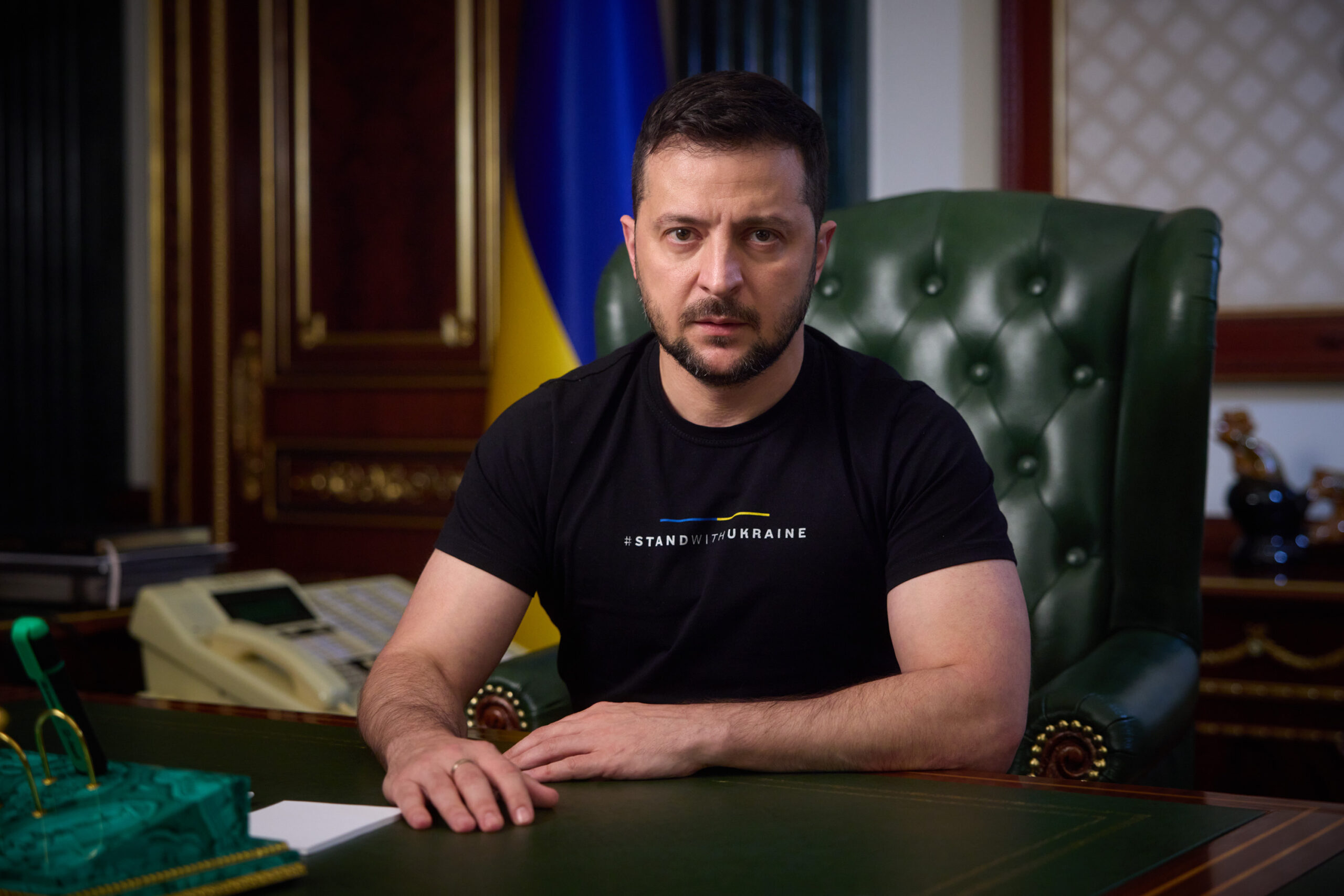
It has been more than 2 years since Russia’s invasion of Ukraine began. A period that was torturous to the people living in Ukraine and even worse for those fighting for the nation. A period in which the people of Ukraine demonstrated resilience, patriotism and determination to the whole on a scale rarely seen before.
The very fact that the invasion, which most people expected to end in 2 days, has lasted for more than 2 years is a testament to the spirit the people of Ukraine have demonstrated. The resistance that began by successfully countering Russia’s advances soon launched an offensive that managed to surprise the whole world with its remarkable success.
A Wagner rebellion that briefly threatened to end the Putin regime gave the world some hope that maybe Ukraine could win this war. What has happened since then is not so positive for the Ukrainian people. A lack of weapons, (thanks to the gridlock in US politics) meant that the Ukraine’s defense forces are severely outgunned and outnumbered by their Russian counterparts.
Russia’s economy has outperformed expectations, and Ukraine’s soldiers are now psychologically and physically strained. The relatively small population of Ukraine means they are bound to have fewer soldiers than their invaders, and new mobilization laws have been understandably divisive and unpopular.
Although the US and Europe are continuing to provide weapons and ammunition, the political consensus has shifted and most now believe that Ukraine will not be able to win the war. Political divisions in the United States mean that it is unclear if Ukraine will continue to receive the same level of aid and support in the next few years. The Putin regime has settled in for the long fight, biding his time while he waits for Ukraine’s western allies to tire of sending money and weapons.
In such a situation, questions have been raised as to whether Ukraine’s best interest lies in continuing the resistance and fighting until the end, or with achieving peace through compromise. In my view, the answer lies not with us, the rest of the world, but with the people of Ukraine themselves.
If the Ukrainian nation wants to fight until its last breath and uphold their democratic principles, then the free world is obligated to ensure that the soldiers fighting in the trenches have the resources they need. But would this be in the best interests of the citizens of Ukraine?
The new mobilization law has been unpopular with the people, and currently serving soldiers have been devastated physically and mentally. A favorable situation looks unlikely on the ground. It is now time for them to make a difficult choice.
Do they continue their fight for their dignity and their democratic principles at the expense of the lives of their youth? Or do they opt for a peace treaty, saving countless lives, but sacrificing vast regions of their nation and submitting to tyranny.
This choice is undoubtedly hard, and it will be controversial, but I believe it is time for Ukraine to make it. No matter what the people of Ukraine choose, the responsibility of the rest of the world is crystal clear: support Ukraine till the very end.
-

 Campaign 20242 years ago
Campaign 20242 years agoNew poll reveals Hogan’s path to victory
-

 Campaign 20242 years ago
Campaign 20242 years agoRep. Mike Collins makes antisemitic post on X
-
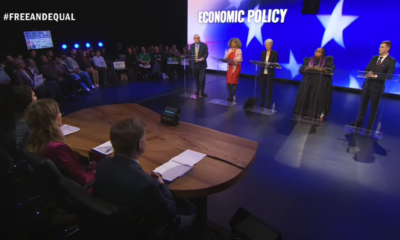
 Campaign 20242 years ago
Campaign 20242 years agoThe Minor Candidate Debate Recap
-

 Opinion2 years ago
Opinion2 years agoOp-ed: Stop talking about Bidenomics
-

 Education2 years ago
Education2 years agoK-12 teachers report varied views on race, gender identity in new poll
-

 State Politics2 years ago
State Politics2 years agoThe new minimum wage in California
-

 Campaign 20242 years ago
Campaign 20242 years agoRuben Gallego quietly leaves Progressive Caucus
-

 Education2 years ago
Education2 years agoHarvard condemns antisemitic Instagram post by campus groups






